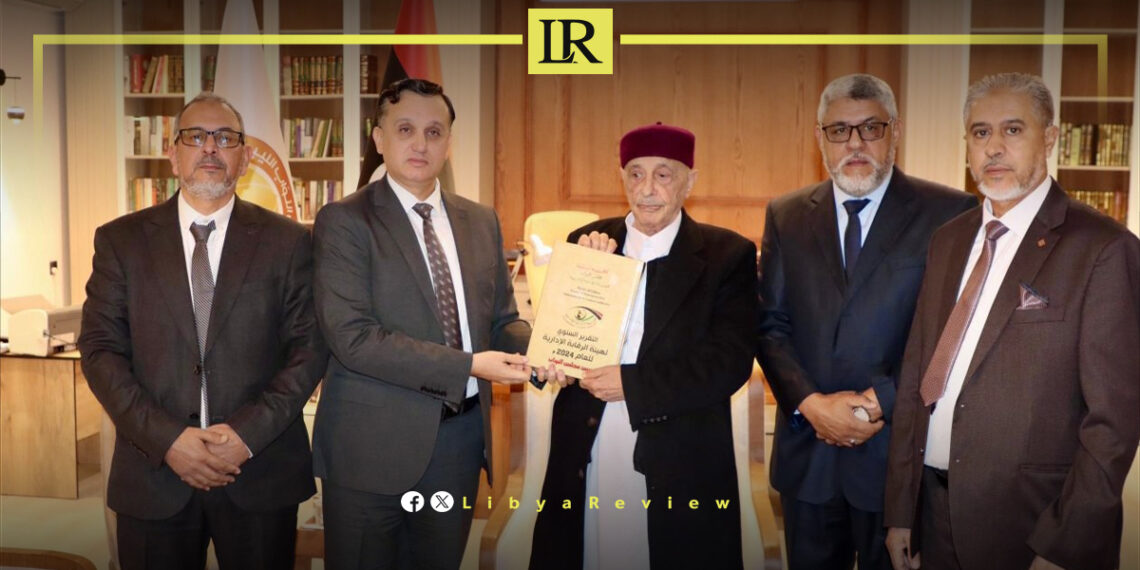Speaker of the House of Representatives and Supreme Commander of the Armed Forces, Ageela Saleh, received the 2024 annual report of the Administrative Audit Authority during a formal meeting at the Parliament’s headquarters in the city of Al-Qubba.
The report was presented by the Authority’s Chairman, Khaled Najm, who attended alongside directors of the Authority’s key departments and offices as part of the regular coordination between oversight institutions and the legislative branch.
During the meeting, Najm delivered the detailed annual report, which outlines the Authority’s most significant findings for 2024 across multiple government sectors.
The document includes evaluations of institutional performance, the results of investigative audits, financial and administrative reviews, and the Authority’s actions to uncover violations and prevent the misuse of public funds. It also highlights ongoing national efforts to combat corruption, enhance transparency, and strengthen accountability within state institutions.
Saleh commended the Administrative Audit Authority for its essential oversight role, emphasizing that strong regulatory bodies are vital for protecting public resources and improving governance.
He reaffirmed his full support for administrative reform and stressed the need to modernize monitoring tools and strengthen accountability mechanisms to raise performance standards across public institutions.
The Speaker noted that thorough auditing not only identifies shortcomings but also provides guidance for improving services and operational efficiency. He underscored the importance of maintaining continuous cooperation between Parliament and oversight bodies to ensure that recommendations contained in the report are implemented effectively and incorporated into broader reform strategies.
Officials indicated that the 2024 report will now be reviewed by specialized parliamentary committees, which will use its findings to support legislative oversight and determine priority areas for administrative and financial restructuring within Libya’s public sector.
The meeting comes at a time when Libyan institutions face increasing pressure to enhance transparency, correct systemic weaknesses, and reinforce public confidence. The submission of the report represents a significant step in strengthening oversight and advancing national reform efforts aimed at improving governance throughout the country.


